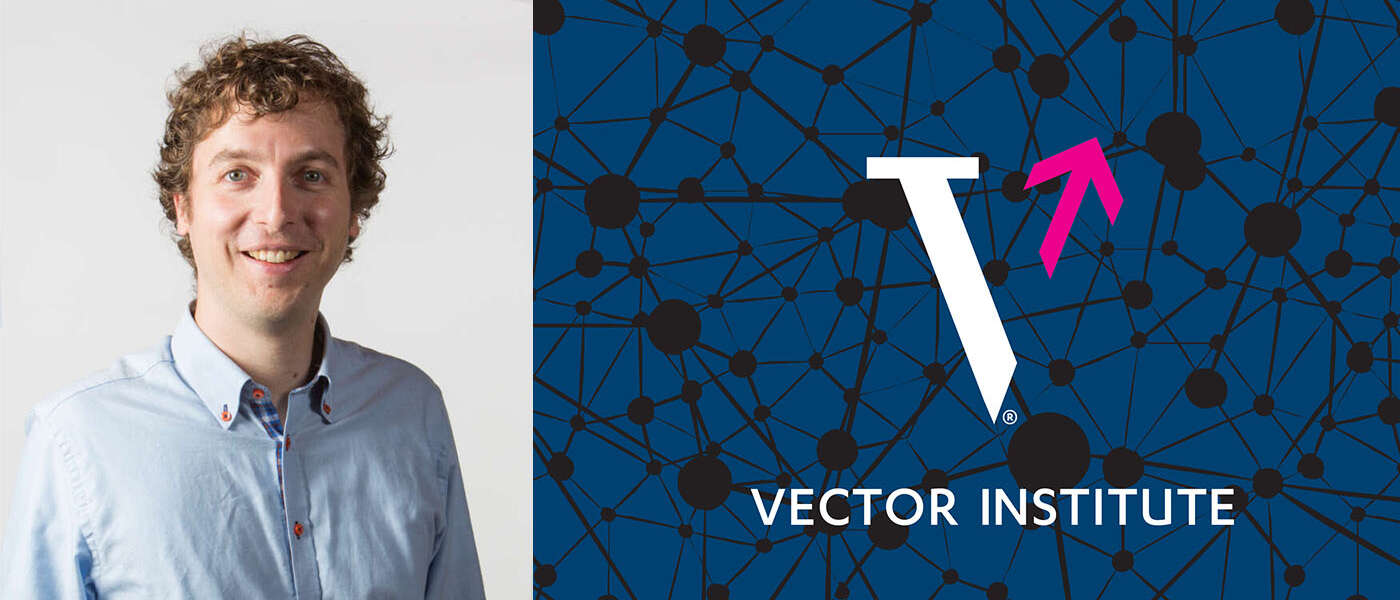Dr. Graham Taylor, a professor in the College of Engineering and Physical Sciences, has been named research director at the Vector Institute, an independent, not-for-profit corporation dedicated to the research and advancement of artificial intelligence (AI).
Vector, based in Toronto, was launched in 2017 with funding from the federal and provincial governments, industry sponsors and has grown to 28 academic partners, including the University of Guelph.
Taylor comes to the role after serving as research director on an interim basis, one of the first faculty members appointed to Vector early on when U of G was one of the initial universities in Canada to affiliate with the institution.
“AI is a tool to help you become more creative,” Taylor said, “expanding beyond the linearity of human thought.”
In the last decade or so, he noted, people have become more cognizant of AI, a technology now ubiquitous.
Vector Institute and the growing AI field in Canada
As AI began to grow and become more prevalent in different technologies, Taylor explained, AI researchers were drawn to opportunities to work abroad, causing Canada to lose some of its talent. “Canada punches above its weight when it comes to AI,” he said.
Aware of the issue, the federal government launched the Pan-Canadian AI strategy in 2017, funding three research institutes on a five-year term: Vector’s “sister institutes” Mila in Montreal and Amii in Edmonton. The Pan-Canadian AI strategy was renewed in 2022 for a second five-year term in addition to support from industry sponsors and the province.
Several of Vector’s industry partners are from the health sector, including hospitals, where AI is implemented to prevent privacy and cybersecurity threats. “You can often gain a lot of efficiency and safety and productivity by employing AI technology,” Taylor said.
‘Huge interest’ in artificial intelligence at U of G
The institute trains thousands of master’s students each year in Ontario, including those from U of G, one of the first post-graduate programs Vector recognized in its training. The connection between the University and the institute has created an opportunity for U of G to recruit faculty and students who, through the partnership, become part of a bigger AI community.
The School of Engineering does not currently offer a course on machine learning at the undergraduate level, Taylor said, despite great enthusiasm. “There’s huge interest in computing in general, but more so specifically artificial intelligence.”
Students frequently reach out to do this kind of work, he said, and researchers across campus want to work with students trained in this kind of technology. “You can apply AI to many different fields, as long as you have data in that discipline,” he said, calling it a “general-purpose technology.”
Existential questions surrounding the use of artificial intelligence
However, “there are big existential questions about AI,” Taylor acknowledged, as technology continues to transform industries, workplaces, even creative pursuits. A major focus for Vector is driving awareness of the technologies and how to take control of it to make good, safe choices, he said.
“A number of researchers at Vector are leaving other areas of AI and moving into AI safety,” said Taylor, similar to the work happening at the Centre for Advancing Responsible and Ethical Artificial Intelligence, where he serves as academic co-director. “Guelph is working to educate the public on issues like AI safety, through initiatives like TD-sponsored CARE About AI.”
Contact:
Dr. Graham Taylor
gwtaylor@uoguelph.ca
